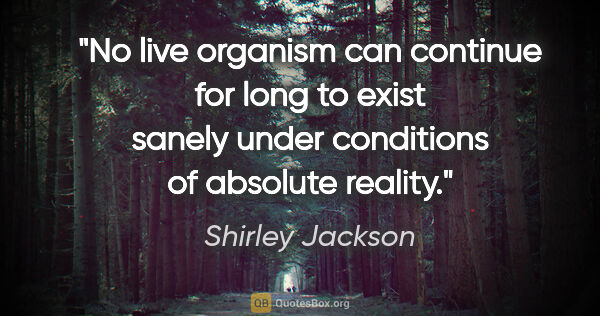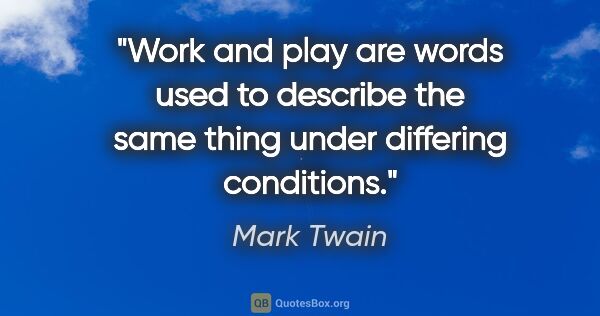Conditional Quotes (page 19)
Suffering is the condition on which we live. And when it comes you know it. You know it as the truth. Of course it's right to cure diseases, to prevent hunger and injustice, as the social organism does. But no society can change the nature of its existence. We can't prevent suffering. This pain and that pain, yes, but not Pain. A society can only relieve social suffering - unnecessary suffering. The rest remains. The root, the reality.
Ursula K. Le Guin

the most sublime efforts of philosophy can extend no farther than feebly to point out the desire, the hope, or, at most, the probability, of a future state, there is nothing, except a divine revelation, that can ascertain the existence, and describe the condition of the invisible country which is destined to receive the souls of men after their separation from the body.
Edward Gibbon
Do you know that even when you look at a tree and say, `That is an oak tree', or `that is a banyan tree', the naming of the tree, which is botanical knowledge, has so conditioned your mind that the word comes between you and actually seeing the tree? To come in contact with the tree you have to put your hand on it and the word will not help you to touch it.
Jiddu Krishnamurti
A child blind from birth doesn't even know he's blind until someone tells him. Even thenhe has only the most academic idea of what blindness is; only the formerly sighted have areal grip on the thing. Ben Hanscom had no sense of being lonely because he had never beenanything but. If the condition had been new, or more localized, he might have understood, butloneliness both encompassed his life and overreached it.
Stephen King
We know that poverty is unpleasant; in fact, since it is so remote, we rather enjoy harrowing ourselves with the thought of its unpleasantness. But don't expect us to do anything about it. We are sorry for you lower classes, just as we are sorry for a, cat with the mange, but we will fight like devils against any improvement of your condition. We feel that you are much safer as you are. The present state of affairs suits us, and we are not going to take the risk of setting you free, even by...
George Orwell
It is an absolute perfection and virtually divine to know how to enjoy our being rightfully. We seek other conditions because we do not understand the use of our own, and go outside of ourselves because we do not know what it is like inside. Yet there is no use our mounting on stilts, for on stilts we must still walk on our own legs. And on the loftiest throne in the world we are still sitting only on our own rump.
Michel de Montaigne
To be sure, man's search for meaning may arouse inner tension rather than inner equilibrium. However, precisely such tension is an indispensable prerequisite of mental health. There is nothing in the world, I venture to say, that would so effectively help one to survive even the worst conditions as the knowledge that there is a meaning in one's life. There is much wisdom in the words of Nietzsche: "He who has a why to live for can bear almost any how
Viktor E. Frankl
Roger stooped, picked up a stone, aimed and threw it at Henry-threw it to miss. The stone, that token of preposterous time, bounced five yards to Henry's right and fell in the water. Roger gathered a handful of stones and began to throw them. Yet there was a space round Henry, perhaps six yards in diameter, into which he dare not throw. Here, invisible yet strong, was the taboo of the old life. Round the squatting child was the protection of parents and school and policemen and the law. ...
William Golding
Music makes me forget my real situation. It transports me into a state which is not my own. Under the influence of music I really seem to feel what I do not feel, to understand what I do not understand, to have powers which I cannot have. Music seems to me to act like yawning or laughter; I have no desire to sleep, but I yawn when I see others yawn; with no reason to laugh, I laugh when I hear others laugh. And music transports me immediately into the condition of soul in which he who wrote...
Leo Tolstoy
Progress, far from consisting in change, depends on retentiveness. When change is absolute there remains no being to improve and no direction is set for possible improvement: and when experience is not retained, as among savages, infancy is perpetual. Those who cannot remember the past are condemned to repeat it. In the first stage of life the mind is frivolous and easily distracted; it misses progress by failing in consecutiveness and persistence. This is the condition of children and...
George Santayana
